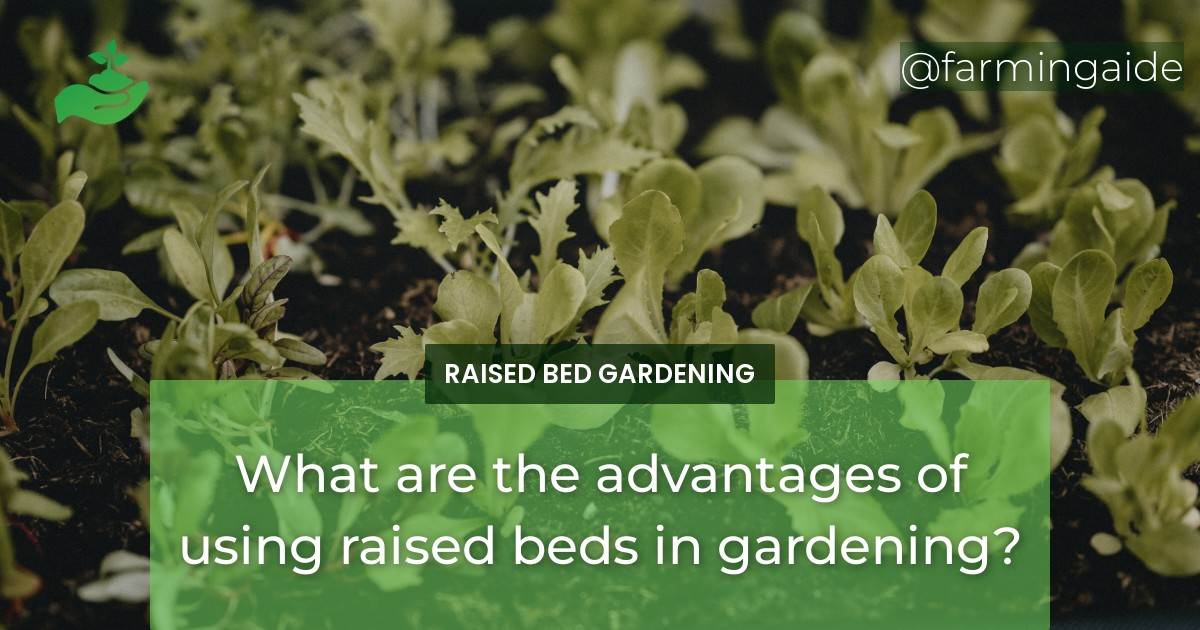Raised bed gardening is an increasingly popular gardening technique that involves planting in a contained area that is raised above the ground. This technique offers a host of benefits over traditional gardening methods. In this article, we will explore the many advantages of using raised beds in gardening.
Improved Drainage
One of the most significant benefits of raised bed gardening is improved drainage. This is achieved through the following:
Deep Roots and Better Water Distribution
Raised beds provide an opportunity for plants to grow deeper roots, which allows them to access more water and nutrients. The soil structure in raised beds is also much looser, which allows for better water distribution.
Prevention of Waterlogging and Soil Erosion
Raised beds are designed to prevent waterlogging and soil erosion. The sides of the bed act as a barrier for excess water, which is especially important in areas with heavy rainfall or poor soil drainage. This design also reduces the amount of soil erosion and nutrient loss.
Optimal Moisture and Oxygen Balance
Another benefit of raised beds is the ability to maintain an optimal balance of moisture and oxygen in the soil. The contained area of the bed allows for better control over the amount of water plants receive, and the loose soil structure promotes better airflow, which helps to prevent waterlogging and root rot.
Better Soil Quality
Raised bed gardening also offers better soil quality, which is essential for growing healthy plants. This is achieved through the following:
Greater Control Over Soil Composition
With raised beds, gardeners have greater control over the composition of the soil. They can mix in compost, organic matter, and other amendments to create the ideal growing conditions for their plants. This is especially important in areas with poor soil quality.
Reduction of Soil Compaction and Contamination
Another benefit of raised beds is the reduction of soil compaction and contamination. Traditional gardening methods often lead to compacted soil, which can limit root growth and nutrient absorption. Raised bed gardening also helps to prevent contamination from surrounding soil or chemicals.
Increased Nutrient Absorption and Retention
Raised beds promote increased nutrient absorption and retention. The loose soil structure allows for better nutrient absorption, and the contained area of the bed helps to prevent nutrient leaching.
ALSO READ
Easier Maintenance
Raised bed gardening is also easier to maintain than traditional gardening methods. This is achieved through the following:
Reduced Weed Growth and Pest Infestation
With raised beds, there is less weed growth and pest infestation. This is due to the contained area of the bed, which makes it more difficult for weeds and pests to take hold. Gardeners can also add weed barriers or other protective measures to further reduce the risk of weed growth and pest infestation.
Convenient Access and Comfortable Cultivation
Raised beds offer convenient access and comfortable cultivation. Gardeners can easily reach all parts of the bed without having to bend over or kneel on the ground. This makes it easier to tend to plants and harvest crops.
Longer Lifespan and Sustainable Gardening
Raised beds have a longer lifespan and promote sustainable gardening. The contained area of the bed helps to prevent soil erosion and nutrient loss, which means gardeners can use the same bed for many years. They also promote sustainable gardening practices, such as composting and using organic matter.
Are Pressure Treated Raised Beds Still Beneficial for Gardening, Despite the Risks?
Although there are concerns about pressure treated raised beds safety, they can still be beneficial for gardening when used cautiously. The risks of chemical leaching can be minimized by using a protective barrier like landscape fabric and ensuring proper ventilation. It’s important to weigh the risks against the benefits for your specific gardening needs.
Conclusion
Overall, raised bed gardening provides numerous benefits that make it a popular choice for both novice and experienced gardeners. By addressing common issues related to drainage, soil quality, and maintenance, raised beds enable growers to optimize their yields and establish healthier and more resilient gardens.


